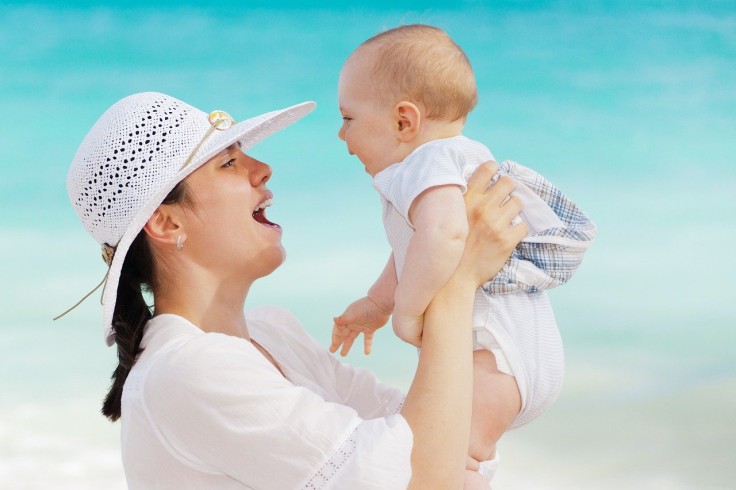
According to a new University of Virginia study, a new mom's ability to recognize positive emotions on the faces of other adults predicts how responsive and sensitive she will be with her baby four months later.
A team from the Department of Psychology's Baby Lab followed 120 mom-and-baby pairs from just after full-term deliveries to five months after birth as part of a more extensive inquiry called the UVA Mom and Baby Study.
Researchers recruited participants from UVA Health for the study. Jessica Stern, the lead author of the study, said that during the newborn period, they asked mothers to look at a series of videos of faces expressing different emotions. The moms had to watch these faces change from neutral to one of five different emotions: happiness, sadness, disgust, anger, fear, and neutral faces.
Researchers invite moms and their infants to Baby Lab for observation
The videos that the participants watched featured adult actors. Stern said what was interesting about this is that a mother's ability to detect emotion in adult faces predicts her sensitivity to her infant. She added that other research looks at how parents respond to infants' faces. One of the follow-up studies they would love to do is see if there is a stronger prediction if mothers were to look at the faces of their own infants.
According to Stern, she has tried the task in the study herself and admitted that it was very challenging. She said some mothers found it easy, while others found it more difficult. Stern added they were interested in those differences and especially how mothers identified happiness and fear because they know that each has been linked to care behaviors in other studies. They did not know whether it would be related to parenting behavior.
When the infants turned five months old, researchers invited them and their moms to the Baby Lab for observation during five minutes of playtime. Stern, a psychologist who teaches courses on close relationships and emotion at the University of Virginia, said that one of the things they were looking for was sensitivity, which is how mothers respond to signals of infants.
Stern would like to include fathers next in a similar research
She added that observing these interactions is one of the best parts of her job as every parent and child is different, and it was like watching a dance.
Researchers were looking for so-called serve-and-return interactions between mother and child. Stern's team found that a mom's ability to detect happiness specifically during the neonatal period predicted greater observed sensitivity from the mother four months later. The team's findings will be published in the journal Emotion.
Stern said she would like to include dads in similar research in the future. She thinks it would be fascinating to have fathers or other caregivers involved in their children's lives.